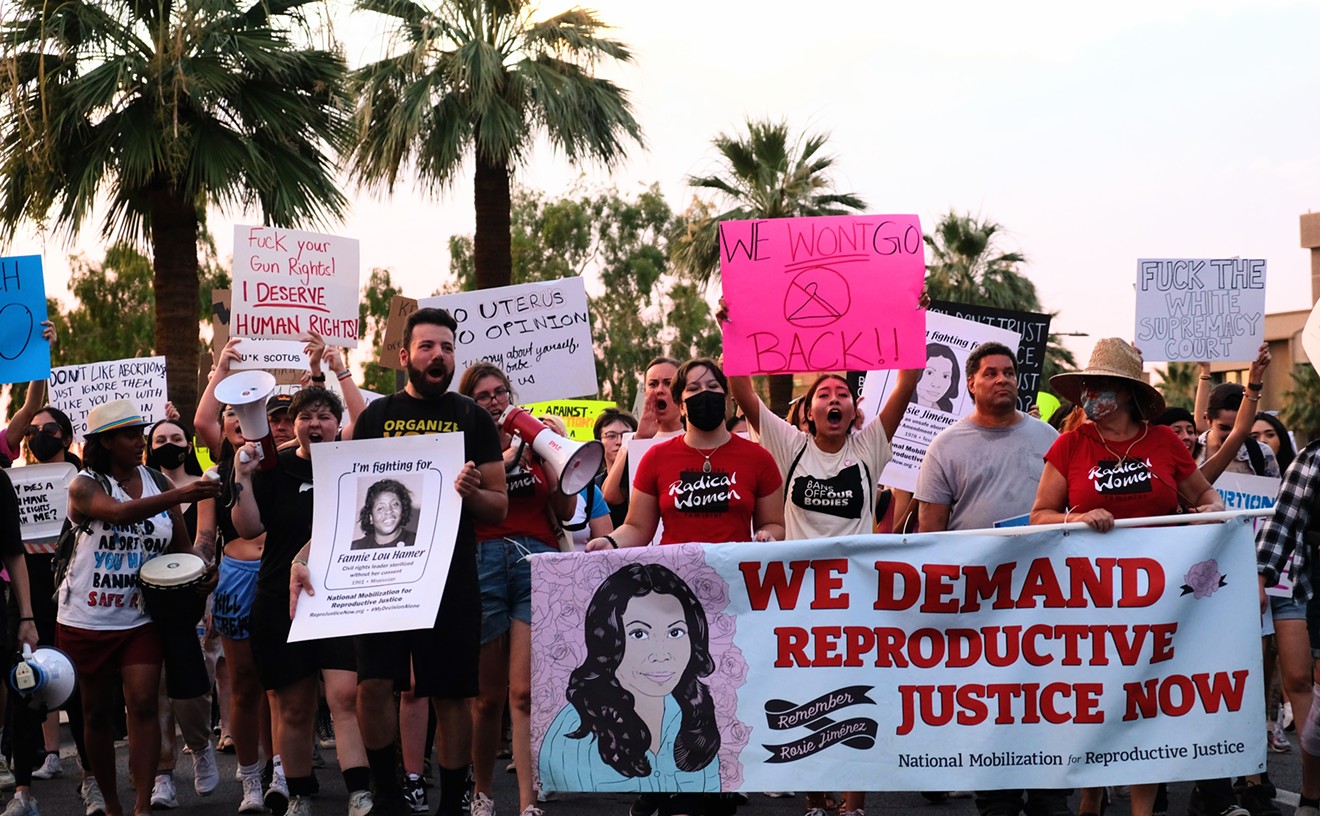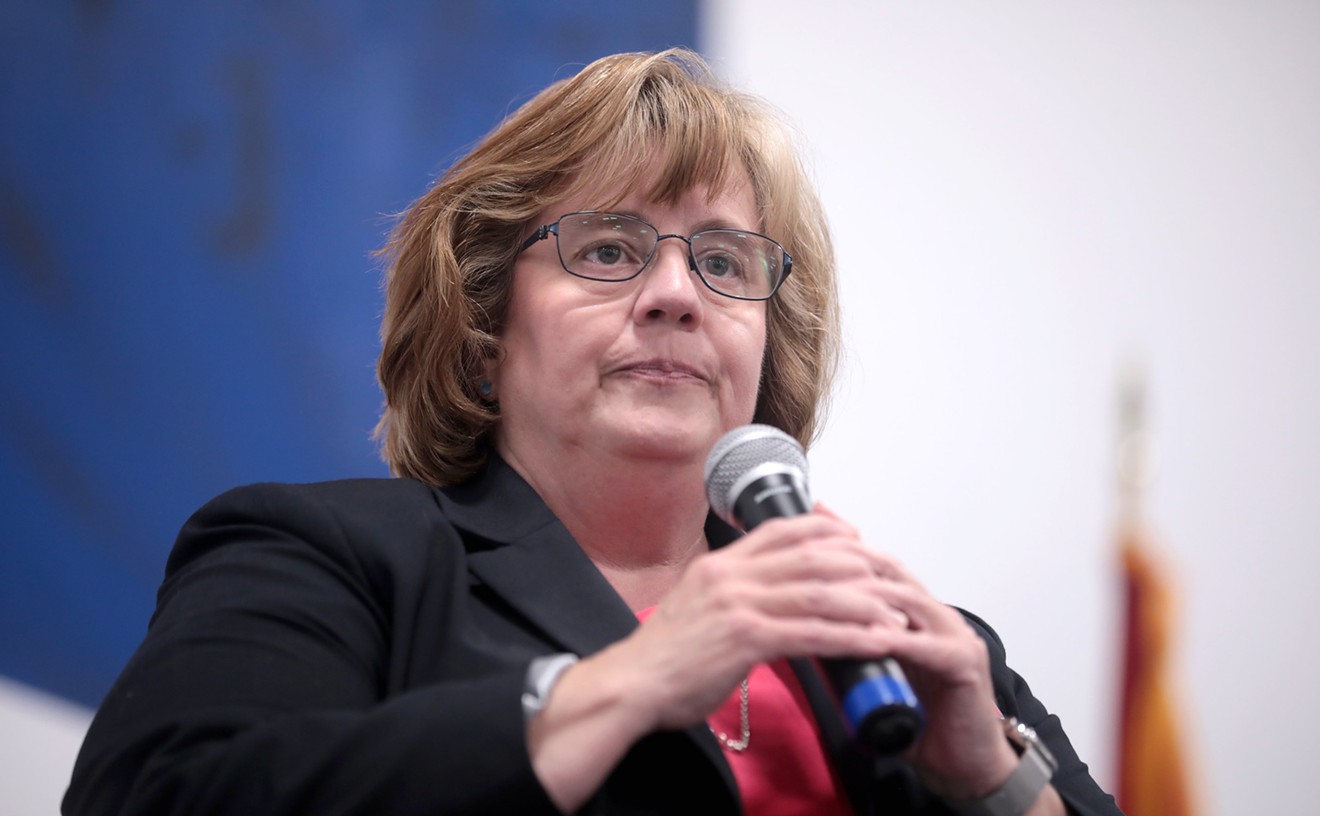Before Evelyn died August 17, she told her daughter that she wished to be cremated and laid to rest next to Everett at Green Acres Cemetery in Scottsdale.
So after her mother's death at the age of 75, Browne went to the same funeral home that had arranged for her father's cremation, Bunker Chapel in Apache Junction, known, in 1972, as M.L. Gibbons Mortuary. She asked that her mother be cremated, too.
Then Browne went to Green Acres to arrange for her mother's remains to be placed next to her father's. Browne hadn't been to Green Acres since she attended a memorial service for Everett Hind at the interment wall in 1972. Apparently, neither had Evelyn Hind.
If either Browne or her mother had visited the wall in the 21 years since Everett Hind's death, they would have noticed there was no nameplate marking his niche. And if they had investigated further, they would have discovered that Everett Hind's remains weren't there at all. His niche was empty.
This revelation, coming two days after her mother's death, was devastating for Browne. She left the interment wall while her husband, Alec, and the Green Acres staff opened all the niches in the area to see whether Hind's remains had been misplaced nearby. They hadn't been.
Before long, Browne says, a Green Acres worker came bounding across the lawn, announcing gleefully, "We found your dad! We found your dad!" "Like he had walked out the door and got lost or something," Browne says.
Everett Hind's remains were in storage at Bunker Chapel.
"I couldn't believe it. It was like my dad was just left on a shelf with the garbage for 21 years," Browne says.
When Browne went to Bunker Chapel, she was confronted by the sight of her parents' remains, sitting side by side in small boxes. It was an experience she had hoped to avoid.
"My mother and I were very close, and to see her in this box with her name on it was overwhelming," Browne says. "Not a day goes by that I don't see the image of those two boxes."
A slip of paper on her father's box bore his name in what Browne described as "old-style" type.
A review of the Everett Hind file at Bunker indicates that Polly Rodgers, a longtime employee who had located his remains last month, had signed the paperwork for his cremation 21 years ago. A notation in the file indicates that the Hind family would be responsible for picking up and disposing of the remains.
That was news to Browne, who lived with her mother for years after her father's death. Evelyn Hind was a detail-oriented person, Browne says, who never would have left such an important matter unresolved.
Evelyn Hind believed her husband was in his niche on the day of the memorial service 21 years ago, and nobody at the cemetery or funeral home ever contacted her to indicate otherwise.
"I was in shock," Browne says. "I couldn't believe that families would not be notified, to be told that Uncle Joe or your mother or your aunt is still here. . . ."
However, funeral directors interviewed by New Times confirm that unclaimed remains are common. They say grieving survivors are often unsure what to do with them, so the ashes can remain in storage for months, years, even decades. Rather than disposing of the remains--at the risk of offending a relative who might eventually claim them--many funeral directors choose to store them.
To Alec Browne, such disclaimers beg credibility. "It bespeaks such a lack of concern," he says. "If you have a room full of cremains, shouldn't somebody do something about it?"
Ironically, a state law was enacted in 1989 to deal with this very problem. After holding remains for 30 days, the law requires a funeral home to send two written notices to the last known address of a relative. If there is no response after 90 days, the funeral home may dispose of the remains.
However, the law does not apply to the remains of anyone who died before the law took effect.
Polly Rodgers at Bunker Chapel says that Evelyn Hind was telephoned about her husband's wayward remains--a claim that Sharon Browne vehemently denies.
Evelyn Hind "would have been horrified" to learn that her husband had not been properly laid to rest, Sharon Browne says.
Rodgers says she made an effort a few years ago to contact relatives about unclaimed remains, but stopped because "people said it reminded them of a bad time in their lives."
Dave Hawkins, vice president of Green Acres, says his cemetery did nothing wrong in the Everett Hind case.
"The mix-up occurred somewhere along the line with us not receiving the cremains," Hawkins says. "Cemeteries do not go pick up cremains at the mortuary."
As for the empty niche, Hawkins says people frequently purchase a niche long before it's needed. An empty niche would not arouse the suspicion of his staff.
Furthermore, Hawkins says, "It's kind of amazing that neither the mother or daughter came out here in 21 years. If she [Evelyn Hind] was so meticulous, why wasn't she out to visit the niche for 21 years?
"Why is anybody trying to lay blame on anyone other than the family?" Hawkins wonders. "I fail to see where there's a problem . . . whether it's the family or the mortuary, it certainly is not Green Acres' problem."
Green Acres, incidentally, gave Sharon Browne a $175 refund--the price her mother paid for her father's niche--after she decided to lay both her parents to rest at Mountain View Cemetery in Apache Junction.
"They just sent a check," Sharon Browne says. "No note. No apology.










